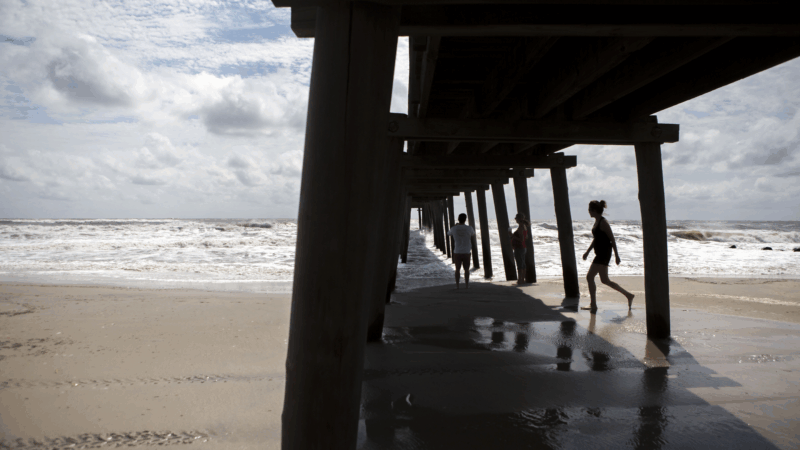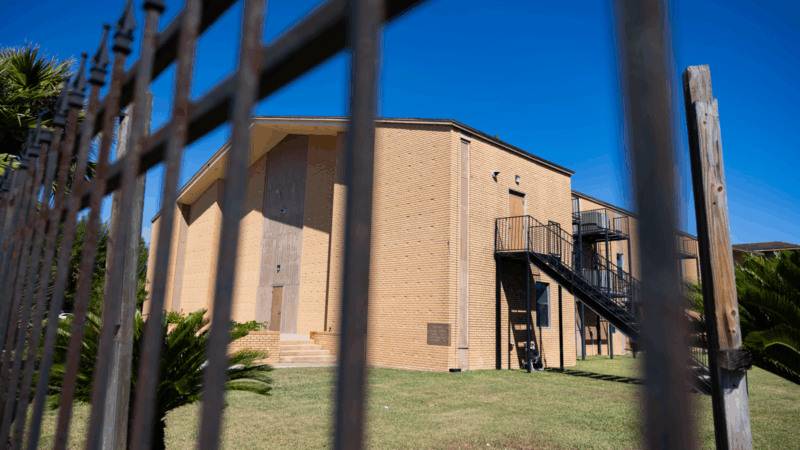Cold case solved: College students help ID the remains of a 19th century sea captain
Undergraduate students at a New Jersey college have helped to identify the skeletal remains of a sea captain who made his final, ill-fated voyage nearly 200 years ago.
Henry Goodsell was the 29-year-old captain of the schooner Oriental, which was hired in 1844 to deliver 60 tons of marble to a Philadelphia boarding school, according to research released this week from the Ramapo College of New Jersey Investigative Genetic Genealogy Center (IGG).
After setting sail from Connecticut, the ship made it within a mile of the shoreline before a leak in the vessel dragged Goodsell and his small crew to their watery graves, according to the college.
Between 1995 and 2013, a skull and bone fragments washed ashore on the beaches of South Jersey, including in Longport, Margate and Ocean City.
Having made little progress on the case known as “Scattered Man John Doe,” in the fall of 2023, the New Jersey State Police partnered with the IGG to try to put a name to the remains.
Using investigative genetic genealogy — which combines consumer DNA testing, like 23andMe, with genealogical research — the students set to work to solve the mystery.
A sample from the bones was uploaded to genetic genealogy company Intermountain Forensics — a nonprofit that works with law enforcement to help identify human remains through DNA — which then submitted it to DNA matching sites GEDmatch and FamilyTreeDNA in February 2024.
This year, through researching reported shipwrecks in the area and genealogy of the tested sample, the team made a breakthrough in identifying Goodsell.
“Using modern genealogy testing to identify bone fragments from the 19th century is a powerful reminder of our unwavering commitment to resolving cases no matter how old,” Patrick Callahan, New Jersey State Police superintendent, said in a statement.
“The ability to bring answers to families — even generations later — shows how far science and dedication can take us. Our partnership with Ramapo College has been instrumental in making this possible, and we are incredibly proud of the meaningful progress we continue to make together,” he said.
Ramapo officials said the Goodsell case is one of the oldest cold case identifications using this form of identification.
Since launching the IGG in late 2022, the program has been consulted on 92 cold cases and has successfully helped identify more than a dozen human remains nationwide.
Voting nears to a close in Texas primary that may be crucial to control of the Senate
The GOP and Democratic primaries mark a potential litmus test for what direction base voters want their parties to go ahead of midterm elections this fall that will determine power in Congress.
Pregnant migrant girls are being sent to a Texas shelter flagged as medically risky
Government officials and advocates for the children worry the goal is to concentrate them in Texas, where abortion is banned.
The 2026 World Cup faces big challenges with only 100 days to go
Will Iran compete? Will violence in Mexico flare up? And what about funding for host cities in the U.S.? With only 100 days left before it beings, the 2026 World Cup in North America is facing a lot of uncertainty.
A glimpse of Iran, through the eyes of its artists and journalists
Understanding one of the world's oldest civilizations can't be achieved through a single film or book. But recent works of literature, journalism, music and film by Iranians are a powerful starting point.
Mitski comes undone
She may be indie rock's queen of precisely rendered emotion, but on Mitski's latest album, Nothing's About to Happen to Me, warped perspectives, questionable motives and possible hauntings abound.
This quiet epic is the top-grossing Japanese live action film of all time
The Oscar-nominated Kokuho tells a compelling story about friendship, the weight of history and the torturous road to becoming a star in Japan's Kabuki theater.







